Brexit: Seismic moments at the heart of the EU
- Published
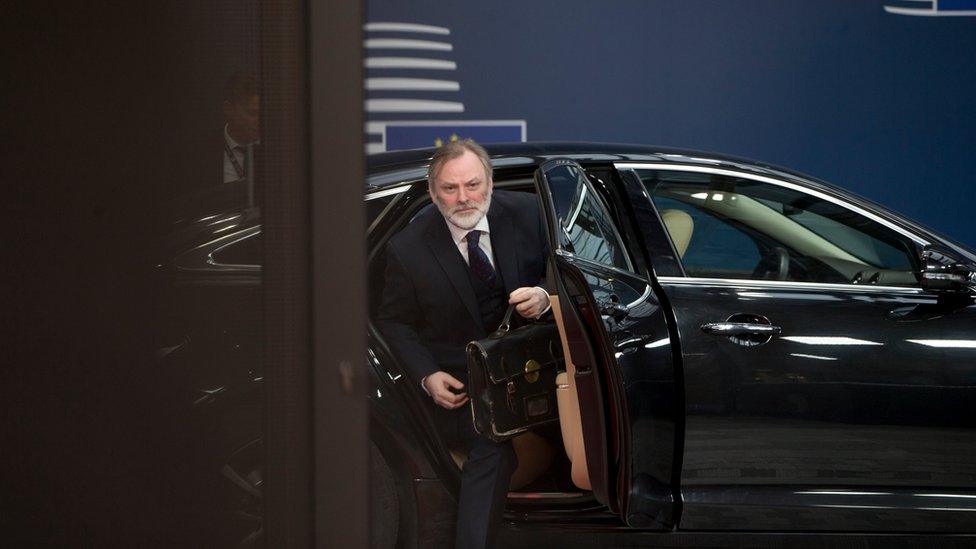
Sir Tim Barrow delivered the letter that officially triggered the negotiations for Brexit
Just before 07:00, a sleek black Jaguar sidled up outside a grand residence on one of Brussels' finest boulevards. A curtain twitched, a beady eye surveyed the gathering cameras.
This was an important day. Nothing must go wrong. A press officer ushered back the reporters so Sir Tim Barrow, the UK's ambassador to the EU, could reach his car unimpeded. His waistcoat was pristine, his beard neatly trimmed. A man used to backroom diplomacy now prepared for a day in the spotlight.
But in his hands, nothing. Where was the letter? The car whisked him to his office across town. When he emerged, with even more cameras watching, he had a briefcase.
Was the letter in it? It must be.
He was off to the European Council for a general meeting of EU ambassadors. They are not used to so much interest in such routine gatherings. His counterparts were surprised by the reception. It was clear a seismic shift was about to shudder the EU like never before.
Sir Tim breezed in without a flicker. Had he read the letter, one reporter asked. Had he come to take back control? A man on a mission, the ambassador didn't give anything away.
The new Council building is large and confusing. Sir Tim - and the letter - were swept through doors that were closed to journalists. Somebody didn't want us to see the moment of the handover. Britain is sensitive about the hurt this decision has caused those who've made the European project their life's work. Only a handful of photographers were there to capture the moment.
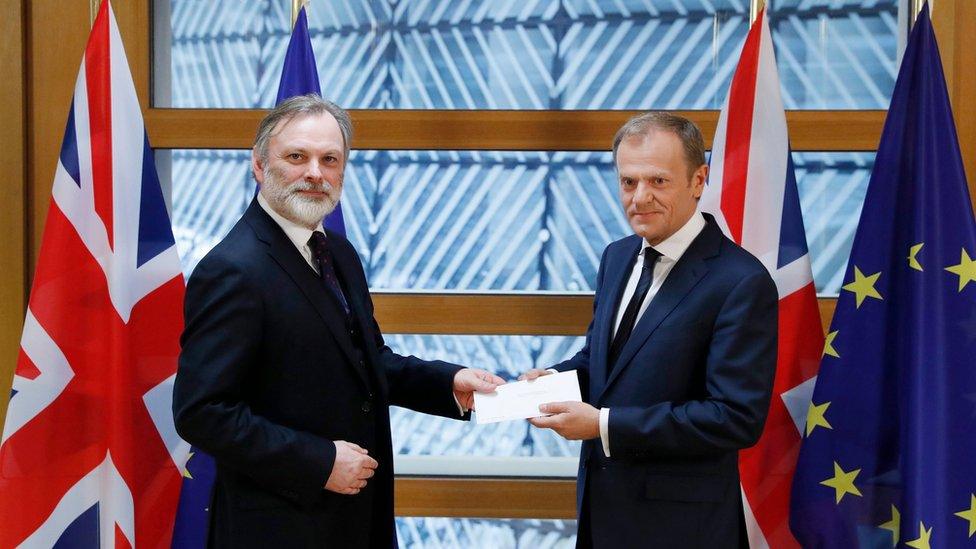
The moment was hailed as "historic" by the prime minister
The Council President Donald Tusk tweeted confirmation he'd received the letter: "After nine months the UK has delivered. #Brexit". And that was that - the clock had started on Britain's Brexit rebirth.
Afterwards Mr Tusk looked shattered, a man who had lost a dear friend. His statement was subdued: There is no reason to pretend this is a happy day, he said, either in Brussels or London.
He went on to say the only positive of Brexit was the stronger unity amongst the remaining 27 EU countries. That may be true. It may also be designed to send a message to Britain that divide and rule won't work in this negotiation.
Donald Tusk: 'We miss you already'
More sorrowful sentiment came in from across Europe, underlined with some tough talking about the deal on offer. The fault lines were quickly becoming apparent. The exit bill, the timeline and the question over transitional arrangements, an early guarantee of citizens rights, and the perception Theresa May was threatening co-operation on security would suffer without a new trade deal.
Outside the European Commission building a man wandered up and down with a banner that read "Thank EU for Peace". His name was Jonathan and he was the lone voice representing 48% of the British people, over from London to be where his heart was, he said.
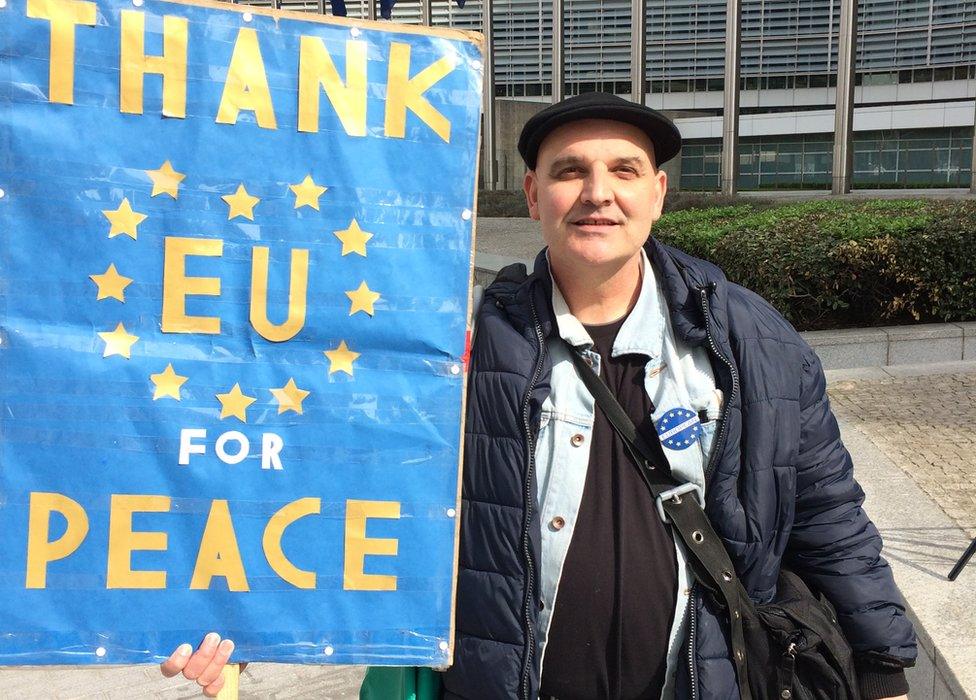
Jonathan was the only pro-EU demonstrator outside the European Commission building
Across the road, Ukip MEPs spilled out of a pub, celebrating what they had campaigned so hard, for so long, to achieve. "Veni, vidi, vici" proclaimed David Coburn, "Ukip came, we saw and today we conquered". The eurosceptics' dominance of the day was cemented by "photobombing" Jonathan's interview on live TV. "This is a second D-Day," added a Swedish MEP drinking with them.
Victory or retreat? The beginning of the end of the UK's global influence or the start of a new era of bold British confidence projected beyond the confines of the European Union? Whatever your view, a massive change is coming, and now it is finally under way.
- Published29 March 2017
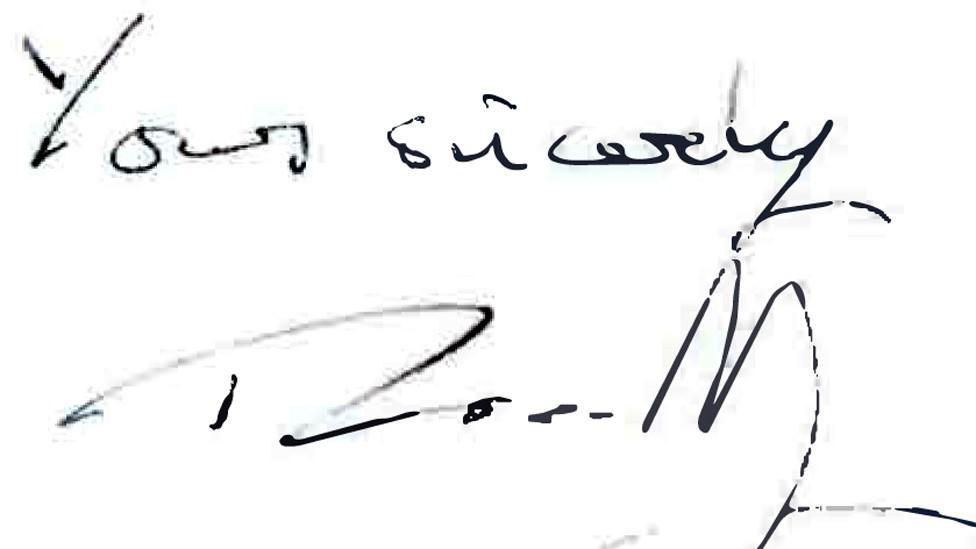
- Published29 March 2017
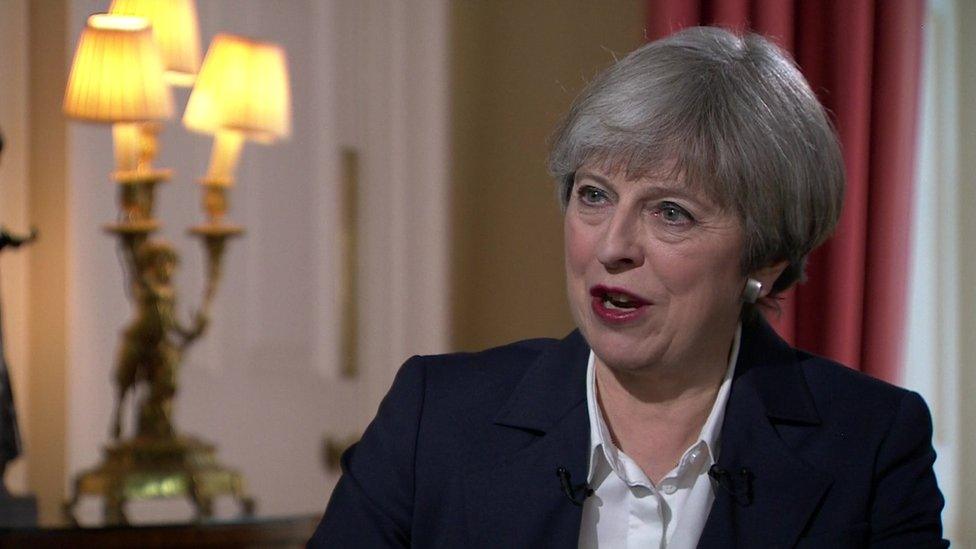
- Published29 March 2017
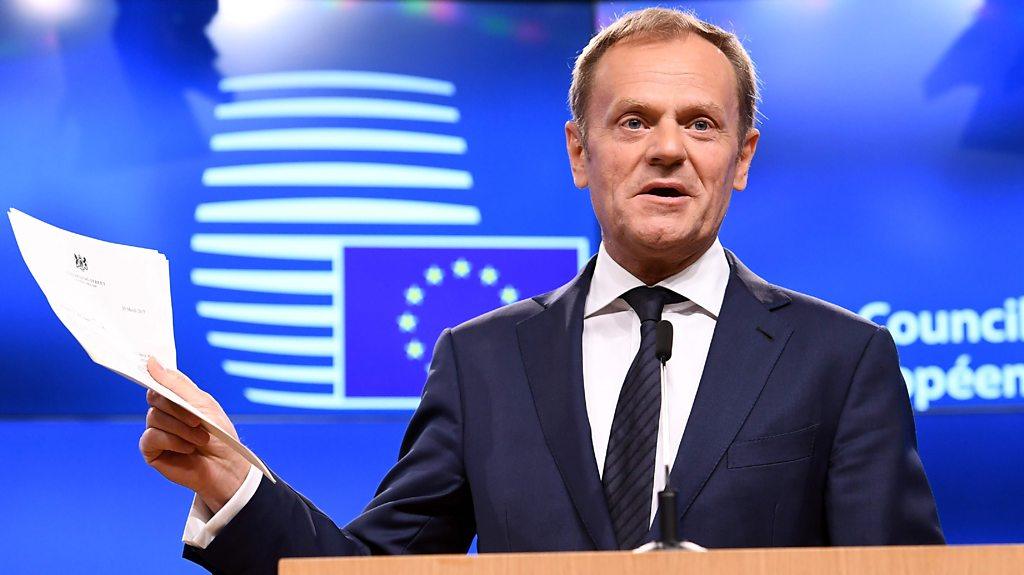
- Published29 March 2017
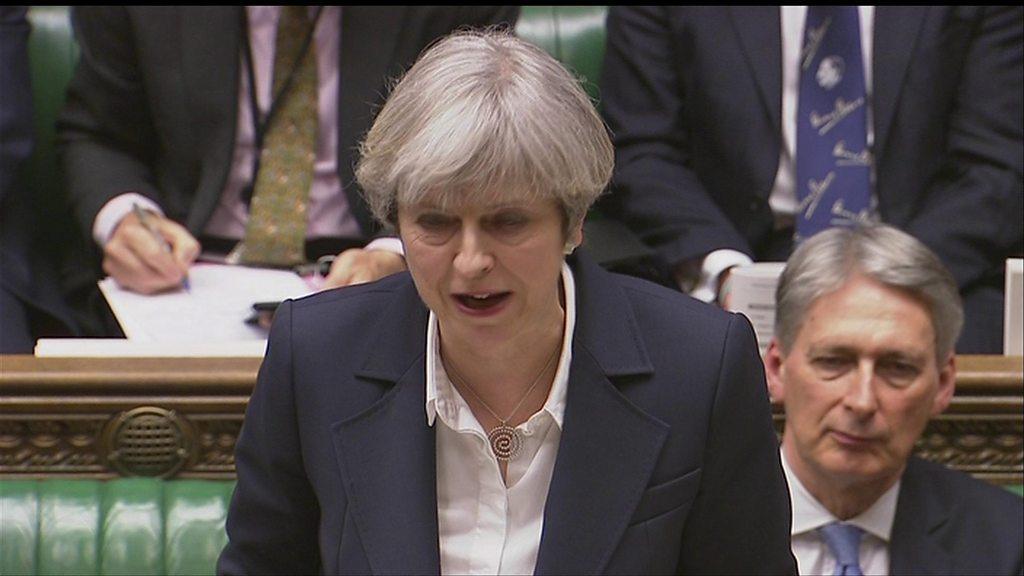
- Published29 March 2017
- Published29 March 2017
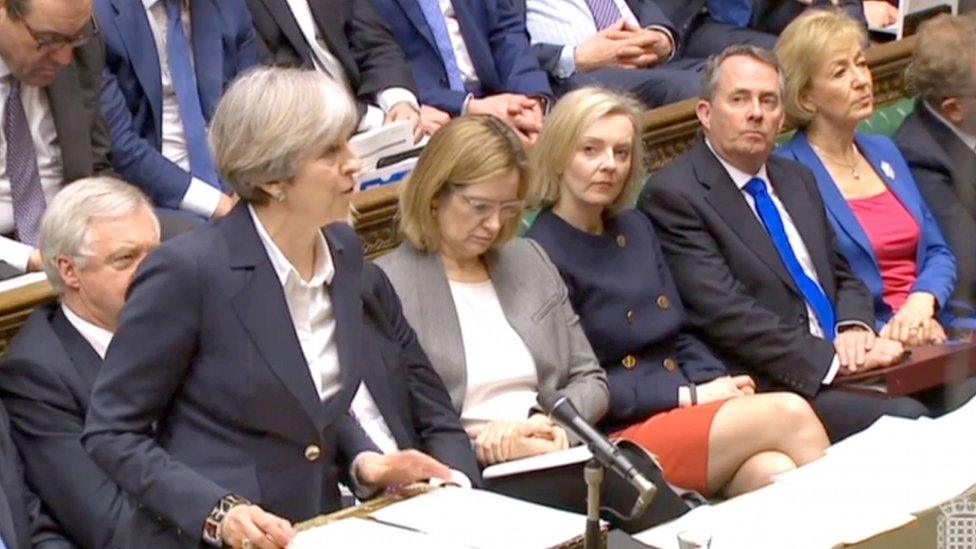
- Published29 March 2017
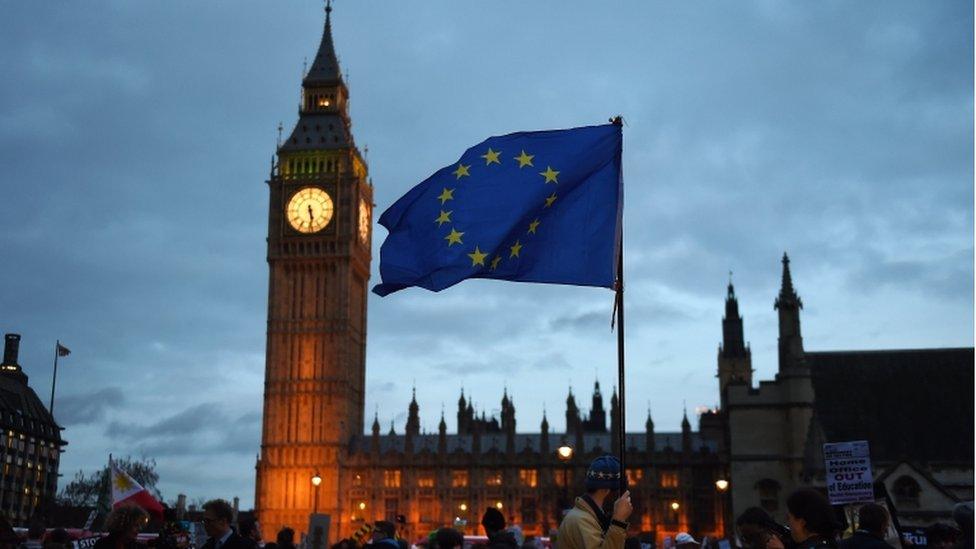
- Published30 December 2020
